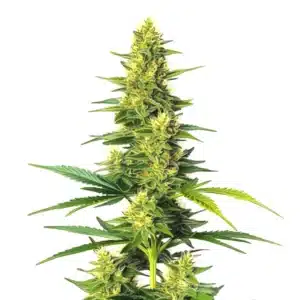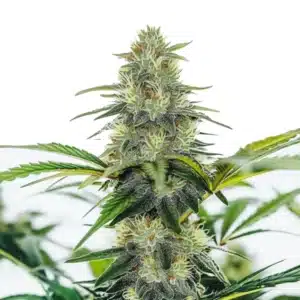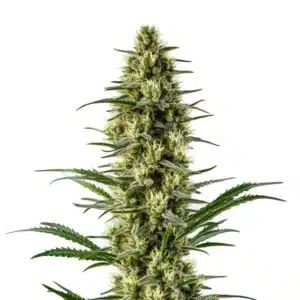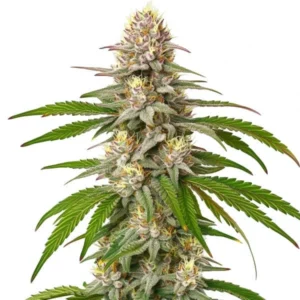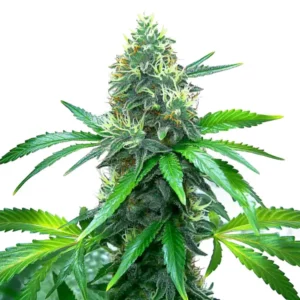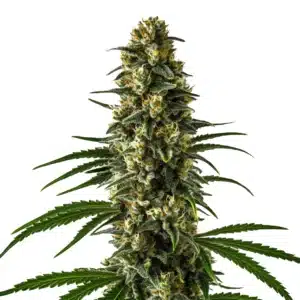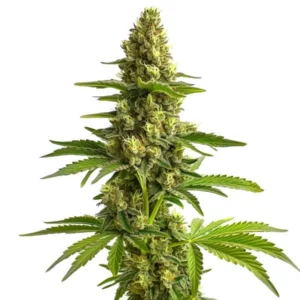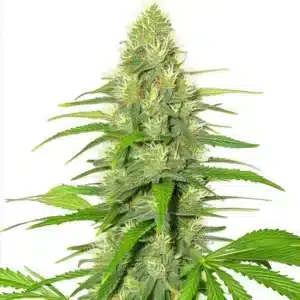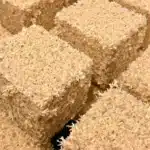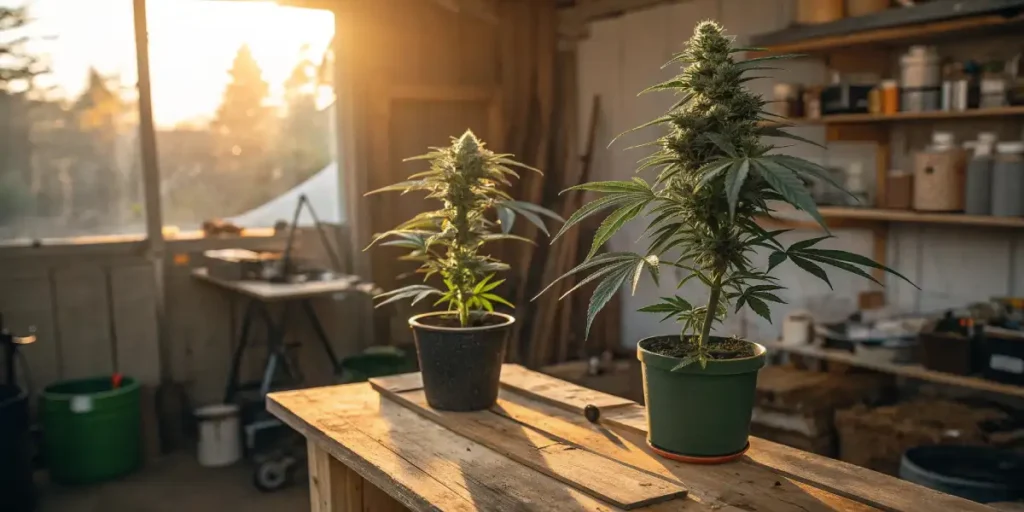
Rockwool vs. Organic Plugs: The Cloning Showdown Finally Made Simple
You’re standing there, ready to clone your favorite plant, faced with the classic choice: the inorganic, classic Rockwool cube or the earthy, organic peat plug. It’s the ultimate showdown, and the internet is full of confusing debates.
Forget all that. I’m going to make this incredibly simple for you.
Recommended Strains
Auto White Widow CBD
|
|
CBD | 10% – 12% (Medium) |
|
|
Type | CBD Autoflowering |
|
|
Yield | Low |
|
|
Phenotype | 40% Indica / 60% Sativa |
AK x White Widow Auto
|
|
THC | 18% - 24% (Medium) |
|
|
Type | Autoflowering |
|
|
Yield | Low |
|
|
Phenotype | 60% Indica / 40% Sativa |
There’s a golden rule that solves this dilemma for 90% of growers. Here it is: If your clones are going into a hydroponic system, use Rockwool. If they are going into a pot with soil, use an organic plug.
Simple as that. Now, let’s talk about why, so you understand the power behind this choice.
The World of Rockwool: For the Hydro Control Freak
Rockwool is a totally inert, inorganic material spun from molten rock. Think of it as a blank slate. It contains zero nutrients, zero life, zero anything. And for a hydro grower, that is EXACTLY what you want.
Why? Because hydro is all about total control. You are providing 100% of the plant’s nutrition through the water. You need a medium that won’t interfere. With Rockwool, you have god-like control over the pH and, most importantly, the EC (the nutrient strength) of your water. It’s also lightning-fast and space-efficient, letting you pack a ton of clones into a small tray. This is the choice for the precise, technical grower.
Promos & Deals
The World of Organic Plugs: For the Soil Grower’s Peace of Mind
An organic plug, like a Rapid Rooter or a Jiffy pellet, is the complete opposite. It’s made of compressed peat and organic materials. It’s alive. It has its own ecosystem. And for a clone destined for a pot of soil, this is a huge advantage.
That organic matter creates a natural buffer. It protects the delicate new roots from your mistakes. If your temperature swings a little, the plug helps insulate. If your feeding is a tiny bit too strong, the organic material helps mitigate it. It’s forgiving. It’s the perfect, gentle transition for a young plant that will eventually live in a rich, complex soil environment. It’s the choice for the Organic grower who wants a Sustainable and resilient start.
The One Rule That Governs Them ALL
Now listen up, because this is the most important part. It doesn’t matter which plug you use. The moment you see those beautiful, shiny white roots poking out of the bottom… they must be protected from light. Immediately.
Light will scorch and kill new roots on contact. They are designed for darkness. The second you see them, it’s time to transplant them into their next home, whether it’s your DWC bucket or a pot of soil. Don’t wait.
When you Cultivate with this understanding, you can successfully clone any vigorous strain you want, from White Widow to GG4. You’re not just following steps; you’re making an informed, expert choice to Nurture your Homegrown clones in the best way possible.
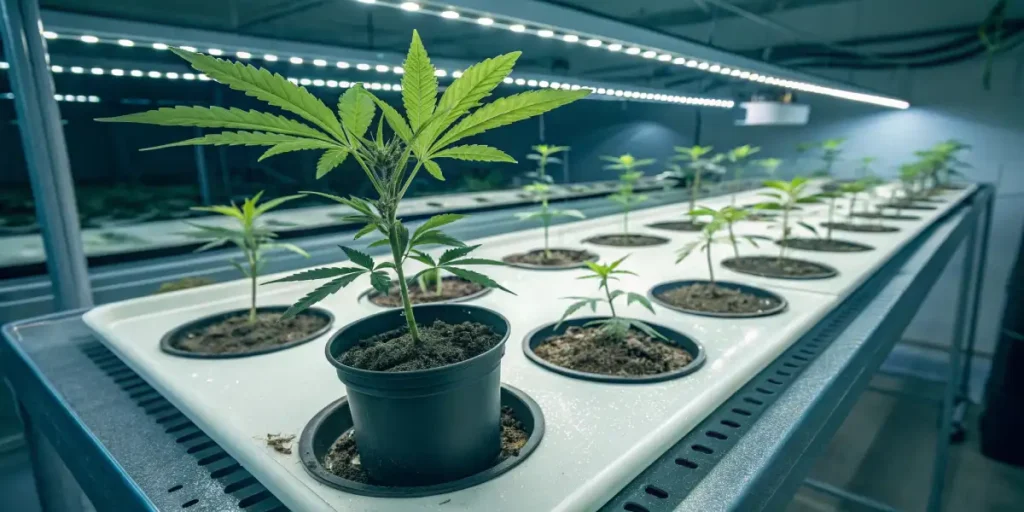
FAQs
What’s the easiest way to choose between Rockwool and organic plugs?
Simple. Ask yourself where the clone will live permanently. If it’s going into a hydroponic system (DWC, Ebb & Flow, etc.), use Rockwool. If it’s going into a pot with soil, use an organic plug like a Jiffy or Rapid Rooter. This one choice aligns the clone’s entire life cycle.
Why is Rockwool considered better for hydroponics?
Because Rockwool is inert, it’s a “blank slate” with no nutrients of its own. This gives the hydroponic grower total control over the nutrient solution (the EC and pH), which is the entire point of growing with hydro. You’re in command of everything the root receives.
Why are organic plugs more forgiving for beginners growing in soil?
Organic plugs are made from natural materials like peat, which create a “buffer” around the new roots. This buffer helps protect the delicate roots from small mistakes in watering, temperature, or feeding. It’s like a safety net that Rockwool doesn’t have.
What’s the most important rule once roots appear on any plug?
No light! The second those fresh, white roots poke out of the bottom of the plug, they are extremely vulnerable to light. Light will damage or kill them very quickly. You must transplant the plug into its next home (hydro system or soil pot) as soon as you see the first roots emerge.


